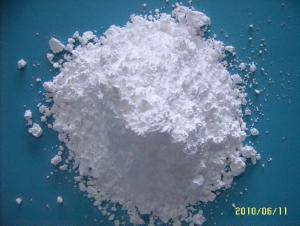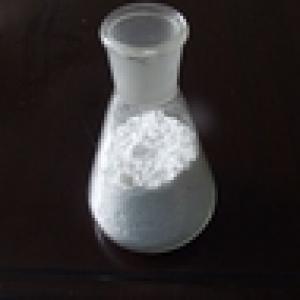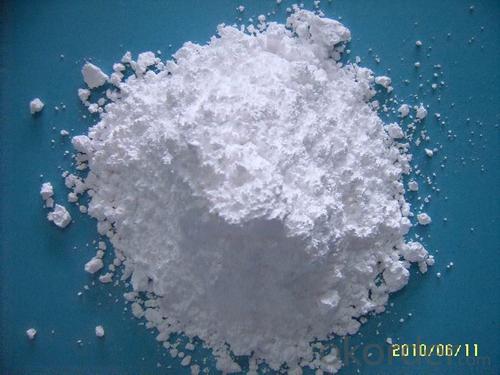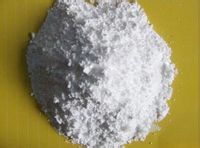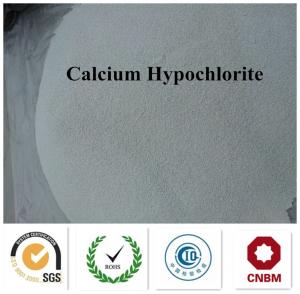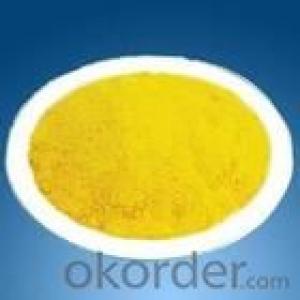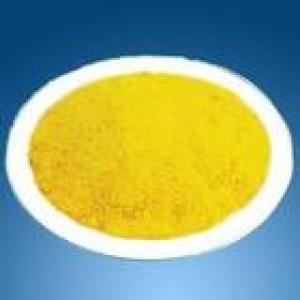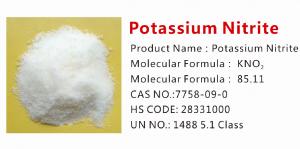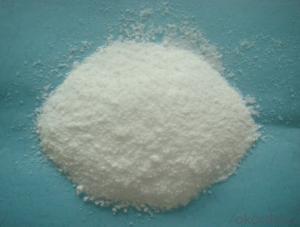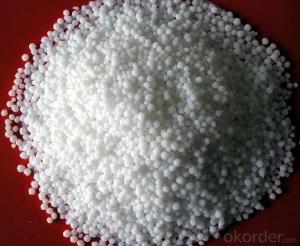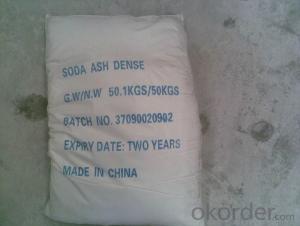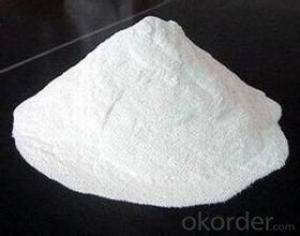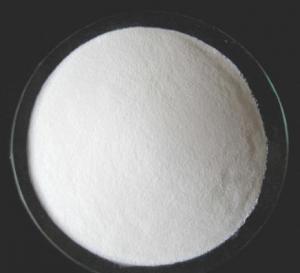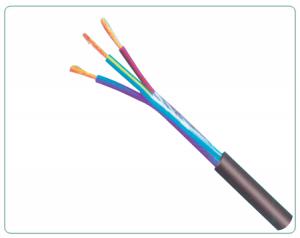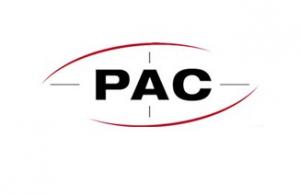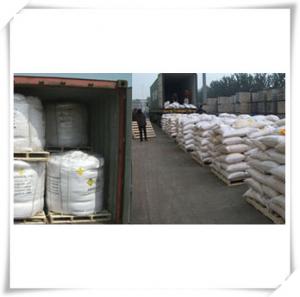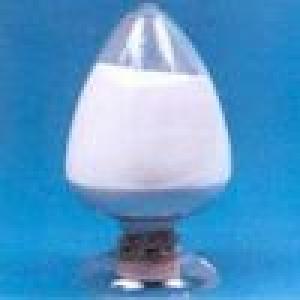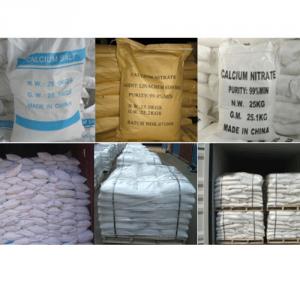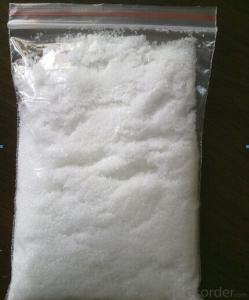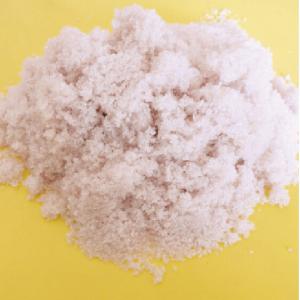Flame Retardant Zinc Borate
- Loading Port:
- Tianjin Port
- Payment Terms:
- TT or LC
- Min Order Qty:
- 20MT m.t.
- Supply Capability:
- 120000MT m.t./month
OKorder Service Pledge
OKorder Financial Service
You Might Also Like
Features of Flame Retardant Zinc Borate:
1.Inorganic addition flame retardan
2.Good hot stability
3.Used in rubber, plastic, cable, wood
Product Description of Flame Retardant Zinc Borate:
Product name | Flame retardant Zinc borate |
Chemical property | CAS No:1332-07-6 Molecular Formula: ZnB4O7 |
Properties | White color powder |
Specifications | ZnO % : 37.74 B2O3 % : 47.65 Surface Water % : 0.14 Water of crystallization % : 13.70 Lead content (ppm) % : 6.80 Cadmium (ppm) % : 1.43 Specific gravity: 2.67 Melting point oC: 980 Temp. of dehydration oC: 320 Refractive Index :1.58 Whiteness : 97 Particle Size D50 (um): 1.88 |
Usage | 1.Inorganic addition flame retardan |
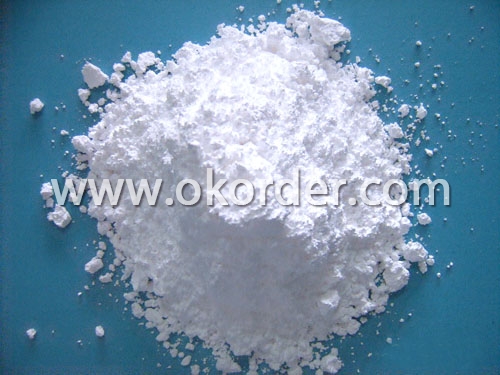
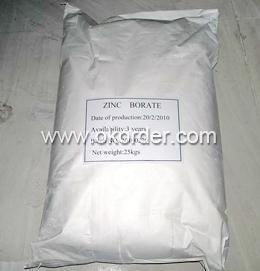
- Q: What is the difference between inorganic and inorganic salts?
- Organic matter: generally used in the biological field, especially in the agricultural sector, narrowly refers to all can be biological (including microbial and plant enzymes) decomposition of organic matter.
- Q: Inorganic salts play an important role in maintaining the life activities of living organisms. It is mainly in the form of living organisms.
- Inorganic salts are mineral nutrients present in the body and in the food. Most inorganic salts in the cells are present in the form of ions, consisting of organic matter and inorganic compounds.
- Q: People do not eat salt tears with no inorganic salt
- Your body depends on sodium ions for a variety of regulation, including the transmission of nerve signals, etc., before you tears do not contain salt before you have a dog
- Q: What are the important physiological effects of inorganic salts in cells
- Maintain the balance in the body
- Q: General identification method of inorganic salts
- Take platinum wire, with hydrochloric acid wet, dipped in the test sample, burning in the colorless flame, the flame that was purple. But a small amount of sodium mixed, must be separated from the blue glass perspective can be identified. 2K ++ [PtCI6] 2- → K2PtCI6
- Q: I tried sodium and potassium carbonate and had little luck. Anyone know where to find the solubility data of inorganic salt in DMF?Thanks.
- Sodium and potassium carbonate WILL dissolve in DMF. The best way to dissolve them is to... a) dry the solid inorganic salt in an oven (> 100 degrees C) overnight. b) pulverize the powder and grind several minutes with mortal and pestle. c) sonicate the mixture for several minutes...
- Q: Common inorganic salt ions will appear when the corresponding symptoms
- Iodine: goiter, mental and physical development disorders
- Q: The inorganic salt is composed of?
- Inorganic salts are the general term for various inorganic salts. They are composed of inorganic acid radicals and metal cations or ammonium salts, mainly salts of organic acid salts, such as sodium chloride, potassium chloride and so on.
- Q: Does the plant roots absorb inorganic salt ions must be active
- Plants absorb inorganic salts and do not necessarily absorb water. Plants absorb moisture and absorb inorganic salts are two relatively independent processes. Plants absorb moisture through the infiltration of root cells to absorb water, the process is essentially free of water diffusion process, neither the carrier nor the need for energy; and plant absorption of inorganic salts is carried out by means of active transport, This process requires the carrier and consumes the energy generated by cell metabolism. Of course, plant water absorption and absorption of inorganic salts are a certain association, inorganic salts to be dissolved in water to be absorbed, and inorganic salt ions in the transport of plants can not be separated from water.
- Q: And what I specifically need are salts with Bromide, Chloride, Phospate and Carbonate ions.Thanks for any help.
- That list is near endless. There are countless inorganic cations and organic groups that can combine with these ions. Pretty much every metallic element in the periodic table will form cations with bromide and chloride. Not sure about phosphate, but most metals will bind with it. Carbonate will be trickier, as some ions are too acidic and will decompose the carbonate (iron(III) is an example, and it will form the oxide instead, liberating CO2 in the process). Aside from simple elemental ions, there are also polyatomic cations (such as ammonium) and lots of complexes that will form compounds with these anions.
1. Manufacturer Overview
| Location | Guangxi, China |
| Year Established | 2005 |
| Annual Output Value | Above US$ 7 Million |
| Main Markets | 20.00% North America 20.00% South America 10.00% Eastern Europe 10.00% Southeast Asia 10.00% Northern Europe 10.00% South Asia 10.00% Western Europe 5.00% Africa 5.00% Mid East |
| Company Certifications | ISO 9001:2008;FAMI-QS |
2. Manufacturer Certificates
| a) Certification Name | |
| Range | |
| Reference | |
| Validity Period |
3. Manufacturer Capability
| a) Trade Capacity | |
| Nearest Port | Guangzhou Port, Fangcheng Port |
| Export Percentage | 91% - 100% |
| No.of Employees in Trade Department | 6-10 People |
| Language Spoken: | English; Chinese |
| b) Factory Information | |
| Factory Size: | Above 100,000 square meters |
| No. of Production Lines | Above 10 |
| Contract Manufacturing | Design Service Offered; Buyer Label Offered |
| Product Price Range | High; Average |
Send your message to us
Flame Retardant Zinc Borate
- Loading Port:
- Tianjin Port
- Payment Terms:
- TT or LC
- Min Order Qty:
- 20MT m.t.
- Supply Capability:
- 120000MT m.t./month
OKorder Service Pledge
OKorder Financial Service
Similar products
Hot products
Hot Searches
Related keywords
